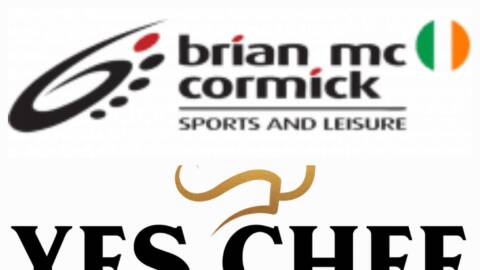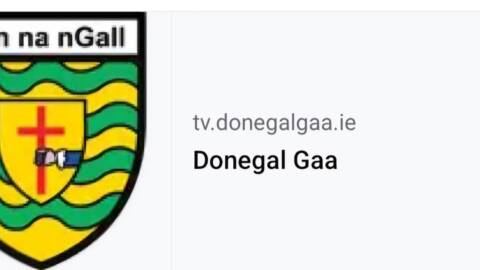The Gaelic Football Rule Changes which become operative on 1 January 2014 are as follows:
1. Introduction of a Black Card for Cynical Behaviour Fouls.
2. Change in the number of substitutes allowed.
3. Distinction between Deliberate and Accidental Fouls.
4. Definition of the Tackle.
5. Introduction of a clearer Advantage Rule.
6. A player in possession may score a point with an open-handed hand-pass.
Cynical Behaviour Fouls
1. Deliberately pull down an opponent.
2. Deliberately trip an opponent with the hand(s), arm, leg or foot.
3. Deliberately body collide with an opponent after he has played the ball away or for the purpose of taking him out of a movement of play.
4. Threaten or to use abusive or provocative language or gestures to an opponent or a teammate.
5. Remonstrate in an aggressive manner with a Match Official.
The penalty for the above fouls are:
i. Free Kick from where the foul occurred.
ii. Order Off offender by showing him a Black Card*.
iii. Allow a replacement from within the substitutions permitted*.
*Substitutes
· Increased to SIX per team.
· Maximum of THREE permitted for Black Card Offenders.
Immediate Ordering Off Infractions (Red Cards)
1. Striking or attempting to strike with arm, elbow, hand, knee or head.
2. Kicking or attempting to kick with minimal force or with force or causing injury.
3. Behaving in any way which is dangerous to an opponent.
4. Spitting at an opponent.
5. Contributing to a melee.
6. Stamping.
7. Inflicting injury recklessly.
8. Abusive language towards a Referee, Umpire, Linesman or Sideline Official.
9. ** To act by deed, word or gesture of a racist, sectarian or anti-inclusion/diversity nature against an opponent
1-8 above are unchanged.
**9. Above was introduced at Congress becoming operative on 22 March 2014.
Cautionable Infractions (Yellow Cards)
1. To block or attempt to block with the boot when an opponent is kicking the ball from the hand(s).
2. To prevent or attempt to prevent an opponent from lifting or kicking the ball off the ground by striking an opponent’s hand, arm, foot or leg with the boot.
3. To engage in any other form of rough play.
4. To attempt to achieve an advantage by feigning a foul or injury.
The above are all currently existing Yellow Card Infractions.
Noting Infractions
1. To hold an opponent with the hand(s).
2. To use the fist on or around the body of an opponent for the purpose of dispossessing him of the ball.
3. To charge an opponent in the back or to the front.
4. To charge an opponent:
i. Who is not in possession of the ball, or
ii. Is in the act of kicking the ball, or
iii. If both players are not moving in the direction of the ball to play it.
5. To charge an opponent for the purpose of giving an advantage to a team-mate.
Noting Infractions remain unchanged – Two Notings result in a Caution (Yellow Card) with a third resulting in an Order Off (second Yellow, followed by Red).
Suspensions
At all levels a Black Card results in a player missing the remainder of the game.
Additionally at Senior Inter County Level (Senior Championship and National League):
3 x Black Cards = 1 Game suspension
3 x Double Yellow Cards = 1 Game suspension
3 x Yellow followed by a Black Card = 1 Game suspension
OR
A Combination of all three (totalling 3) = 1 Game suspension
Only in senior inter-county league and championship games within the same year.
At all Other Levels:
3 x Double Yellows within 48 weeks = 1 game suspension
3 x Yellow followed by a Black card within 48 weeks = 1 game suspension
OR
A combination of both (totalling 3) within 48 weeks = 1 game suspension
The 1 game suspension is applicable to the next game in the Competition in which the third ordering-off occurred at all levels, except Senior inter-county League and Championship.
Deliberate v Accidental Fouls
A Card shall be issued only where the Infraction is deemed by the Referee to have been deliberate and not accidental.
The Tackle
The Tackle is re-defined as:
“The Tackle is a skill by which a player may dispossess an opponent or frustrate his objective within the Rules of Fair Play. The tackle is aimed at the ball, not the player. The tackler may use his body to confront the opponent but deliberate bodily contact (such as punching, slapping, arm holding, pushing, tripping, jersey pulling or a full frontal charge) is forbidden. The only deliberate physical contact can be a Fair Charge i.e. Shoulder-to-shoulder with at least one foot on the ground. More than one player can tackle the player in possession.”
Advantage
Advantage Rule is defined as:
“When a foul is committed the referee may allow the play to continue if he considers it to be to the advantage of the offended team. He shall signal that advantage by raising an arm upright. If he deems no advantage to have occurred, he may subsequently award a free for that foul from where it occurred*. The referee shall allow the advantage to run by maintaining his arm in the upright position for up to five seconds after the initial foul or for less time if it becomes clear that no advantage has accrued. He shall apply any relevant disciplinary action.”
Point with Open Hand
A player in possession may score a Point with the open hand or fist.
Frequently Asked Questions:
1. The new rules sess the introduction of “Black Card Infractions”, in addition to the existing Yellow and Red Cards? Do we have an actual Black Card.
No, we will be using the Referee’s Black Notebook as the “Black Card”.
2. If a player who is Black Carded is being replaced by a substitute, when may that substitution occur?
At a Break in Play, subject to there being no delay to the game.
3. Does the limit of three Black Card subs extend into extra-time?
Yes, the maximum number of subs allowed for Black Cards is three over the course of a full game, including extra time. To recap; in the course of the game the max number is six, with three more permitted in extra time, the total number of Black Card replacements allowed is three.
4. Can a team make six substitutions, even though none of their players has received a Black Card?
Yes, the maximum number of subs which a team may use is increased to six; this is not subject to any of them being for Black Cards.
5. Six substitiutes have been used by a team, two of them for a Black Card, when a third player receives a Black Card. May he be replaced?
No, the overall limit of six has been reached.
6. During the course of the game which goes into extra time, a team has had four players sent off on Black Cards, three of who have been replaced by a substitute, thus finishing with 14 men, Can this team start extra time with 15?
Yes, Rule 2.6 (d) Part 2 Official Guide allowes a player sent off to be replaced for extra-time and this rule is unchanged. Of course the players dismissed on Black Cards may not play in extra time.
7. A player who has been Yellow carded, and later in the game receives a Black Card and is, therefore, dismissed on a Red; does such a scenario count towards the number of players who may be replaced?
No. three players who receive “straight” Black Cards may be replaced, subject to the total of six subs.
8. County and Provincial Club Championships will be played prior to Christmas with the All-Ireland series being played in early 2014. Can you confirm if the “new” rules will be used in those competitions in 2014.
Yes, all games which are played on or after the 1 January 2014 will be played under the “new rules”.
9. In National League and Senior Championship a player is suspended for one game where he has already received three Black Cards. Is his slate wiped clean at this stage?
Yes, once he has served his suspension he starts again from scratch.
10. What is the penalty, at club level, for a Player who receives a number of Black Cards?
Currently a player is dismissed for receiving a Black Card. He does not suffer any suspension for cumulative Black Cards. However if he receives three Double Yellow or Yellow + Black within 48 weeks he is liable to a one game suspension.
11. Can a player who is sent off on a Black Card have a Hearing?
Yes, there is no change to a Player’s right to a Hearing following the introduction of the Black Card rule.
12. If a player, who has been awarded advantage, and during the five second advantage period, takes an unsuccessful shot at goal, what is the correct award?
In these circumstances the play shall be brought back and the free-kick awarded from the place of the original foul.
13. If a player, who has been awarded advantage, commits a foul during the five second advantage period, what is the award?
The free kick shall be awarded against the player who was originally fouled, i.e. he loses his advantage.
13. Where can Players, Officials, Administrators and Supporters get more information?
All of this information, and more, will be available on the GAA website at www.gaa.ie/rules
Rule 7.2(b) – Misconduct at Games by Players/Rule 7.5 – Suspensions
The following is a guidance to the above Rules, which came into effect on March 22nd, as these relate to Players at Club Level.
(1) Category I
Fixed Penalty on second Repeat Infraction (i.e. a third ordering-off) within 48 weeks – a One Match Suspension in the same Code and Level (Club), applicable to the next game in the Competition in which the third ordering – off occurred, even if that game occurs in the following year’s Competition.
(2) Category II
No change. No after-game penalty at Club level.
(3) Categories III and IV
· A minimum One/Two/Three Match Suspension replaces the minimum One/Two/Three Months suspension.
· A Match Suspension is Code and Level (Club) specific.
· The Match Suspension applies to the next game(s) in the same Competition in which the Infraction/Repeat Infraction occurs e.g. a player ordered off in a Championship game misses the next game(s) in that Championship; a player ordered off in a League game misses the next game(s) in that League.
· Match Suspensions may extend to the following year’s Competition (i.e. not confined to calendar year).
· Gravity of Infraction shall be taken into account when determining a Match Suspension and more than the minimum Match Suspension shall be proposed/imposed where appropriate.
(4) Categories V and VI (involving Infractions concerning Match Officials) No change. Time Suspensions apply.
(5) Suspension of Juveniles (participating in Under 16 and younger competitions)
Adult Match Suspensions for Categories 1, 111 and 1V apply. In Categories V and V1 – half the minimum Adult Suspensions apply.
(6) Alternative Penalty to non-applicable Match Suspensions
Where a Match Suspension arising from Rules 7.2(b) or 7.5(h) cannot be applied in full or in part on a player in the specified Competition, arising from such (non exhaustive) circumstances as:
(i) A player exiting an Under-Age Grade
(ii) A Promotion/Relegation Play-Off – having been completed or an inadequate number of games to be played.
(ii) A Tournament – having been completed or inadequate number of games to be played
(iii) A Challenge Game.
– a two weeks Suspension for each non-applicable One Match Suspension shall be proposed/imposed in the same Code and at the same Level.
In the case of a player exiting a Level (e.g. Second Level Schools, Third Level Colleges), the Committee-in-Charge shall refer the case to the relevant Competitions Control Committee at County Committee, Provincial Council or Central Council levels for adjudication . A two weeks Suspension for each non-applicable Match Suspension shall be proposed/imposed at Club level.
(7) Match Suspensions – When Operative
· Where a Match Suspension (or Alternative Penalty when a Match Suspension is non-applicable) is specified for a particular Infraction, it shall be operative immediately on the player being ordered off.
· Where a player is reported by the Referee as having committed a Category 111 or IV Infraction after the conclusion of the game, the Match Suspension (or Alternative Penalty when a Match Suspension is non- applicable) shall be operative immediately, subject to his being notified in writing forthwith of the report having been made.
(8) Infractions Predating March 22nd
· Infractions committed before March 22nd 2014 shall be penalised as per Rule existing prior to that date, even when a case is processed/finalised after that date.
· Where the new Rule introduces a new element of penalty – only Infractions that occur on or after March 22nd 2014 shall be taken into account in the determination of a penalty to be proposed/imposed.
Accordingly, Categories 1, 111 and 1V Infractions committed prior to March 22nd 2014 shall not be taken into account in considering a Penalty for a Repeat Infraction
By Sinéad Breen Donegal PRO Fri 7th Mar














